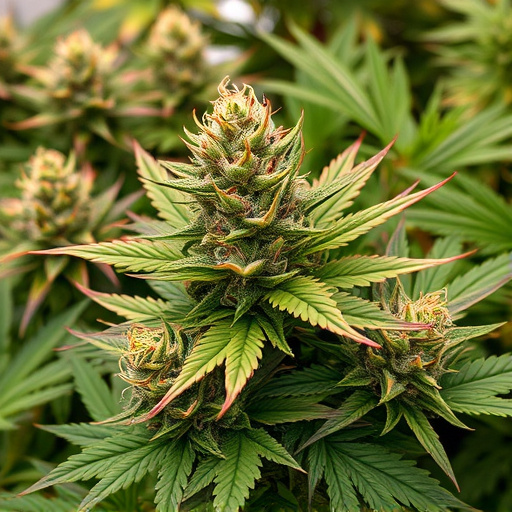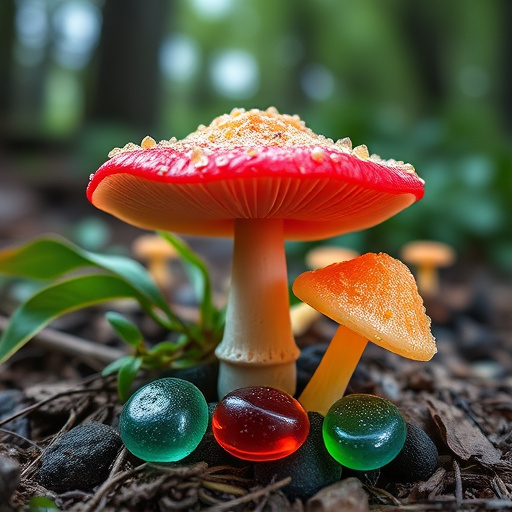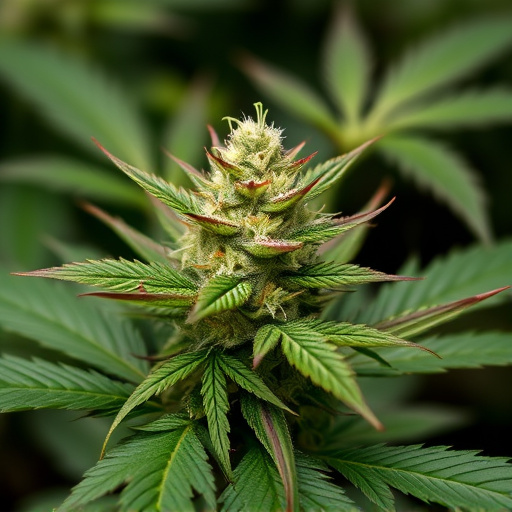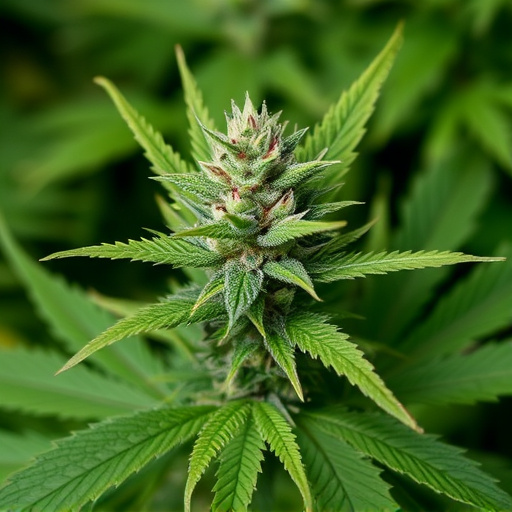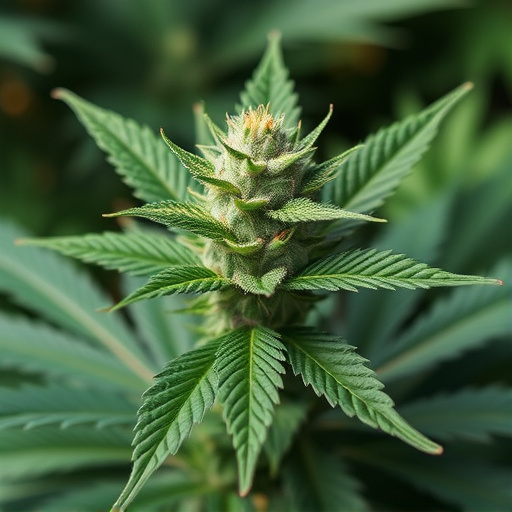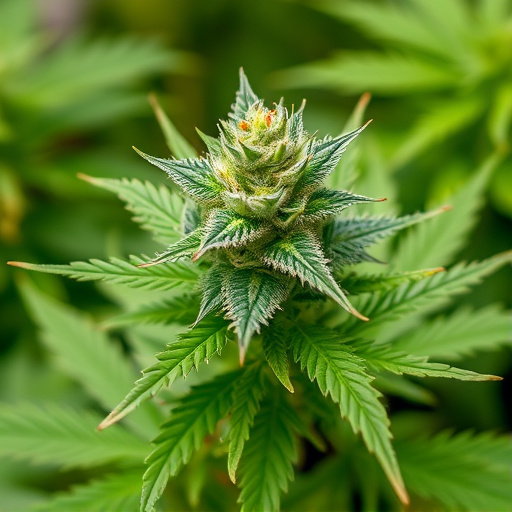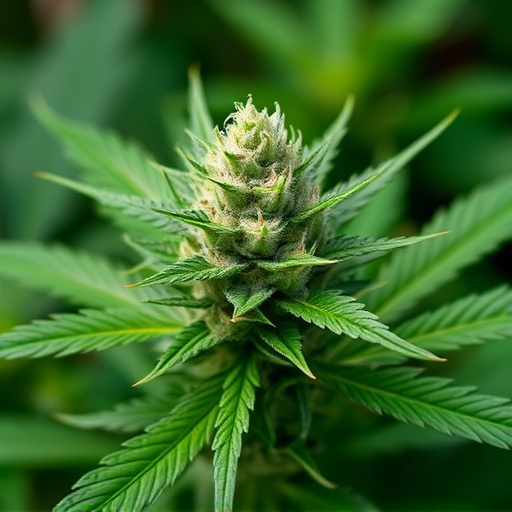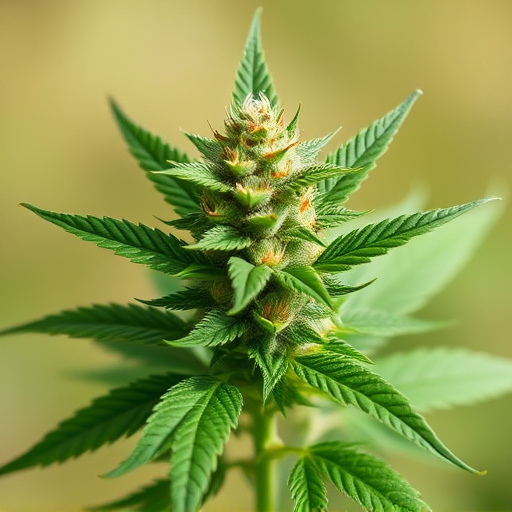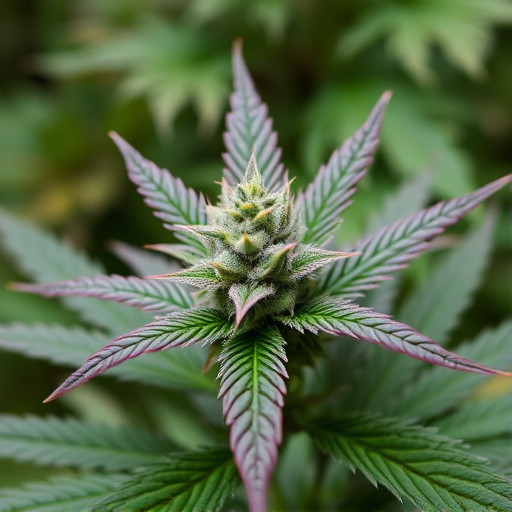Cannabis strains, particularly those rich in CBD and balanced THC, show potential in managing ADHD symptoms by interacting with brain chemistry. High-THC strains can impact focus, mood, and cognitive functions differently in individuals with ADHD, leading to either increased anxiety or enhanced concentration and reduced impulsivity. Personalized medicine approaches are crucial as genetic differences in the endocannabinoid system affect how individuals respond to cannabis treatments. Further research is needed to understand the effectiveness of various cannabis strains for specific ADHD symptoms.
“Unraveling the complex interplay between cannabis and ADHD brain chemistry reveals why this plant has a unique impact on each individual. Cannabis interacts with neurotransmitters like dopamine and serotonin, offering potential symptom relief but varying widely in effectiveness. Genetic predispositions and environmental factors play pivotal roles in shaping how individuals respond to cannabis for ADHD management. This article explores these nuances, providing insights into personalized strain selection based on cannabinoid profiles and terpenes to optimize treatment outcomes for those seeking alternative therapies.”
- The Complex Interaction Between Cannabis and ADHD Brain Chemistry
- – How cannabis affects neurotransmitters like dopamine and serotonin relevant to ADHD symptoms
- – Individual variations in endocannabinoid systems' sensitivity and expression
The Complex Interaction Between Cannabis and ADHD Brain Chemistry
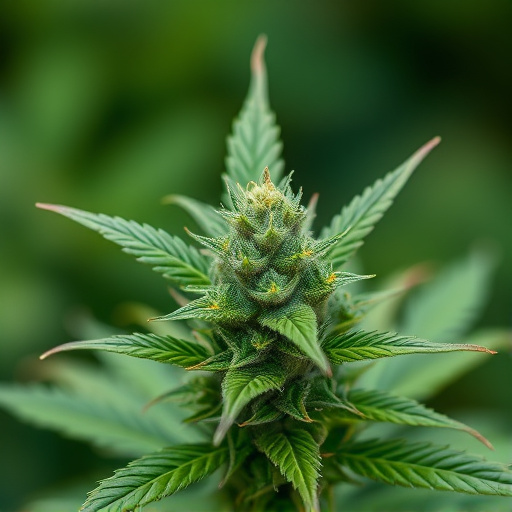
The interaction between cannabis and the brain chemistry of individuals with ADHD is a complex topic. Cannabis, particularly specific strains known for their high THC content, can impact the endocannabinoid system, which plays a significant role in regulating focus, mood, and cognitive functions. For individuals with ADHD, this interaction may manifest differently due to variations in brain chemistry. The effects could range from enhanced concentration and reduced impulsivity to increased anxiety or paranoia, depending on individual neurobiology.
Certain cannabis strains that are high in CBD (cannabidiol) have been found beneficial for many people with ADHD as they can help mitigate some of the adverse effects of THC while engaging with the endocannabinoid system. Researchers suggest that these strains may offer a promising alternative or adjunct therapy, providing potential improvements in symptoms like inattention and hyperactivity. However, it’s crucial to understand that the impact of cannabis on ADHD is still being studied, and personalized approaches are key to determining which strategies work best for individual needs when considering cannabis strains for ADHD management.
– How cannabis affects neurotransmitters like dopamine and serotonin relevant to ADHD symptoms
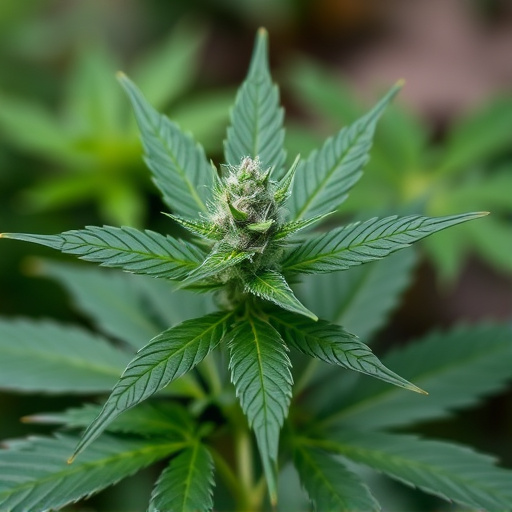
Cannabis has been shown to interact with the brain’s neurotransmitters, offering potential relief for Attention Deficit Hyperactivity Disorder (ADHD) symptoms. Neurotransmitters like dopamine and serotonin play a significant role in focusing attention and regulating mood—areas often affected in individuals with ADHD. Dopamine, responsible for feelings of pleasure and reward, can be modulated by cannabis, which may help manage the impulsivity and hyperfocus associated with the disorder. Serotonin, involved in emotional regulation and cognitive functions, is also influenced by cannabis compounds, potentially offering improvements in mood stability and concentration.
Certain cannabis strains known for their high cannabidiol (CBD) content have gained attention for their potential benefits in treating ADHD. CBD, non-intoxicating, has shown promise in reducing symptoms without the psychotropic effects of tetrahydrocannabinol (THC). Strains with a balance of THC and CBD may offer a more effective approach, as THC can modulate dopamine activity, while CBD interacts with serotonin receptors, providing a dual action that could be beneficial for those seeking natural remedies for ADHD symptoms.
– Individual variations in endocannabinoid systems' sensitivity and expression
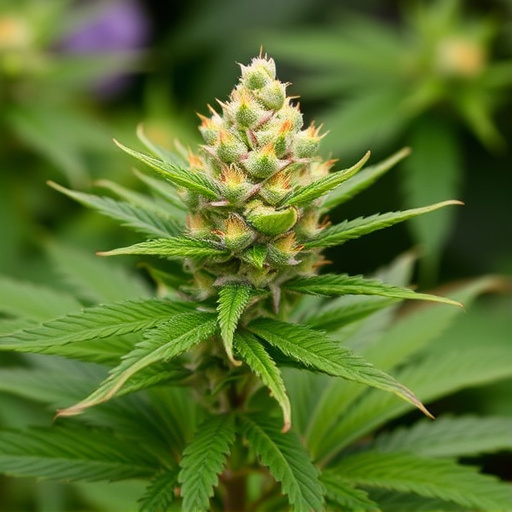
The way cannabis affects individuals can vary greatly, and a significant factor in this disparity is the complexity of our endocannabinoid systems (ECS). Every person has an ECS, which is responsible for maintaining balance within our bodies, known as homeostasis. Sensitivity and expression levels of these receptors can differ from one person to another, leading to unique responses to cannabis consumption. This natural variation means that what works for managing symptoms of ADHD when using cannabis strains tailored for this purpose, for instance, might not produce the same effects on someone else.
Research suggests that genetic differences in ECS components can influence sensitivity to cannabinoids like THC found in cannabis. These variations can determine how strongly one feels the effects, their susceptibility to side effects, and even the potential benefits they experience. For example, individuals with higher tolerance or those who metabolize cannabinoids differently might require different doses or specific cannabis strains for ADHD management compared to others. Understanding these individual differences is crucial for personalized medicine approaches in the cannabis space, ensuring that each patient receives the most effective treatment tailored to their unique ECS profile.
Cannabis can interact with ADHD brain chemistry in complex ways, affecting neurotransmitters like dopamine and serotonin. These effects vary greatly among individuals due to differences in their endocannabinoid systems’ sensitivity and expression. When choosing cannabis strains for ADHD, understanding these variations is crucial to finding the right balance of cannabinoids like THC and CBD that may help manage symptoms without causing adverse effects. Further research is needed to unlock the full potential of cannabis as a treatment option for ADHD, tailoring approaches to individual needs.



